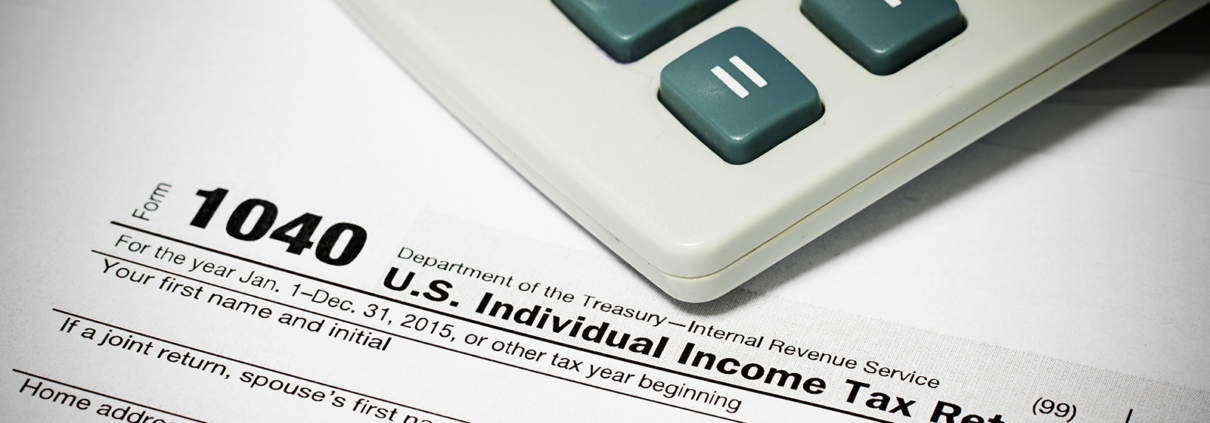Don’t let tax preparation fraud become another Tax Day headache – Fraud.org
With less than seven weeks left before April 18, we have entered the height of tax season—the time of year when more than 70 percent of taxpayers turn to software or tax preparers to help prepare their returns. Unfortunately, it’s also the time when, if you are not careful, you can fall for one of the most common tax scams: tax preparer fraud.
In 2014, the Treasury Inspector General for Tax Administration identified 2.1 million returns that claimed fraudulent refunds totaling more than $15.7 billion. In 2015 the Department of Justice shut down more than 35 fraudulent tax return preparers. Unfortunately, with a problem this large, enforcement alone can only do so much. That’s why it’s important for consumers to get educated about spotting the sign of tax preparation fraud to avoid becoming a victim.
In a typical scam, an unscrupulous tax preparer may falsify your earnings, have you claim credits you did not earn, or even steal your entire refund by having it deposited in their own account. Unfortunately, getting caught up in a tax preparer scam will not just cheat you out of your refund and scam you into paying bogus fees—it can also make victims liable for the hefty fines and even imprisonment associated with the criminal offense of filing a fraudulent tax return!
Fortunately, the vast majority of tax preparers are honest. But that doesn’t mean you should trust your taxes and personal information to just anyone. Tax experts advise that you give the same attention to selecting your tax preparer as you would to selecting a doctor. Here are some helpful hints to find a great provider you can trust:
-
Take advantage of free and trustworthy tax help. If you make less than $54,000 per year, you probably qualify for free in-person help through Volunteer Income Tax Assistance (VITA) Programs. These programs are staffed with IRS-certified volunteers who will help you file and get the refund you deserve. To find a local VITA click here.
-
File for free with IRS Free File. If you make less than $64,000 per year, you qualify for online help through the IRS’s Free File program. This program allows you to use free, name-brand tax filing software for your federal return. To get started, click here.
-
Ask around. If you don’t qualify for any of the free programs, ask your trusted friends and relatives who they go to for tax preparation and whether they would recommend their services.
Even if you are working with a highly recommended tax preparer, it is still a good idea to be on the lookout for the tell-tale signs of a fraudulent tax preparer:
-
Make sure your tax preparer has a Preparer Tax Identification Number (PTIN). In order to file taxes professionally, the IRS requires preparers to have a PTIN. You can check to see if your tax preparer has a PTIN and other credentials and qualifications by checking the IRS’s tax preparer directory.
-
Never sign a blank tax return. If your tax preparer asks you to sign a blank tax return, he is probably trying to pull a fast one on you. A signed blank return enables a con artist to later fill in your tax forms with credits you did not earn.
-
Always make sure your preparer provides you with a copy of your return. If you don’t get a copy, your provider could be filling in credits you did not earn to increase his fee.
-
Never hire a preparer who bases their fee off of a percentage of your refund. Fraudulent preparers often use this tactic to increase their commissions by claiming credits you did not earn. By the time the IRS identifies the mistake, your preparer will have been paid and you will owe back taxes.
-
Avoid fly-by-night operators. It is always helpful to have a preparer you know will be around for you, whether it is to answer a question, or to fix a mistake they made.
-
Don’t trust a preparer that only needs your last pay stub to file for you. A legitimate preparer will always need your W-2s to file a return.
-
Never pay a tax penalty directly to the preparer. If you owe taxes or penalties to the IRS, you will always pay the IRS directly. If you are asked to pay the preparer for owed taxes or penalties (instead of just the tax preparation fee), chance are that it’s a scam.
Fraudulent tax preparers are not always easy to spot. If you fall victim to one, immediately report it to the IRS and file a complaint at Fraud.org via our secure online complaint form. We’ll share your complaint with our network of more than 200 law enforcement and consumer protection agency partners who can and do put fraudsters behind bars.







